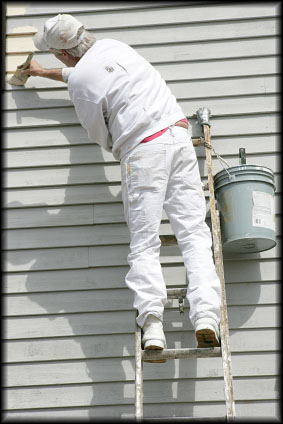DHHS → MeCDC → Environmental and Community Health → EOHP → Childhood Lead Poisoning → Jobs and Hobbies
Childhood Lead Poisoning

Jobs and Hobbies
Learn which jobs and hobbies can put you or your family at risk.
Learn which jobs and hobbies can put you or your family at risk
Even if your home does not put your child at risk for lead poisoning, your hobby
or job might.
Lead dust from hobbies and jobs can easily be carried into a child's environment.
Even small amounts of lead can affect how a young child learns and thinks.
- Lead dust can easily cling to children's car seats, clothes and toys.
- Lead dust can be carried away from a work site on work clothes,
shoes, tools, hair and skin. - Pregnant women should be especially careful of lead dust.
You may work with lead dust if you:
- Remove old paint
- Tear down or remodel houses, buildings, tanks, or bridges
- Work at a shooting range
- Work with soldering pipes
- Recycle or fix car radiators
- Melt, cast, or grind lead, brass or bronze
- Make or paint ceramics
- Work with scrap metal
- Make stained glass windows
To protect yourself and your family from lead from your hobby or job:
- Always eat outside of the work area, and away from all sources of lead.
- Wash your hands well with soap and water after working with lead
and before eating. - Wear specific clothes for work or hobbies and wash them separately
from other clothes. - If you can, change your clothes before you get in your vehicle to leave your work site,
you may be contaminating your car with lead dust from your clothing which can then
spread to places like your child's car seat. - Shower and wash your hair before holding or playing with your child.
- Know the warning signs of lead poisoning.
Materials
| Document/Resource | Source | Size | Type |
|---|---|---|---|
| Don’t Take Lead Home From Your Job! | Maine Childhood Lead Poisoning Prevention Program, Maine CDC, DHHS | 916 KB | PDF* |

